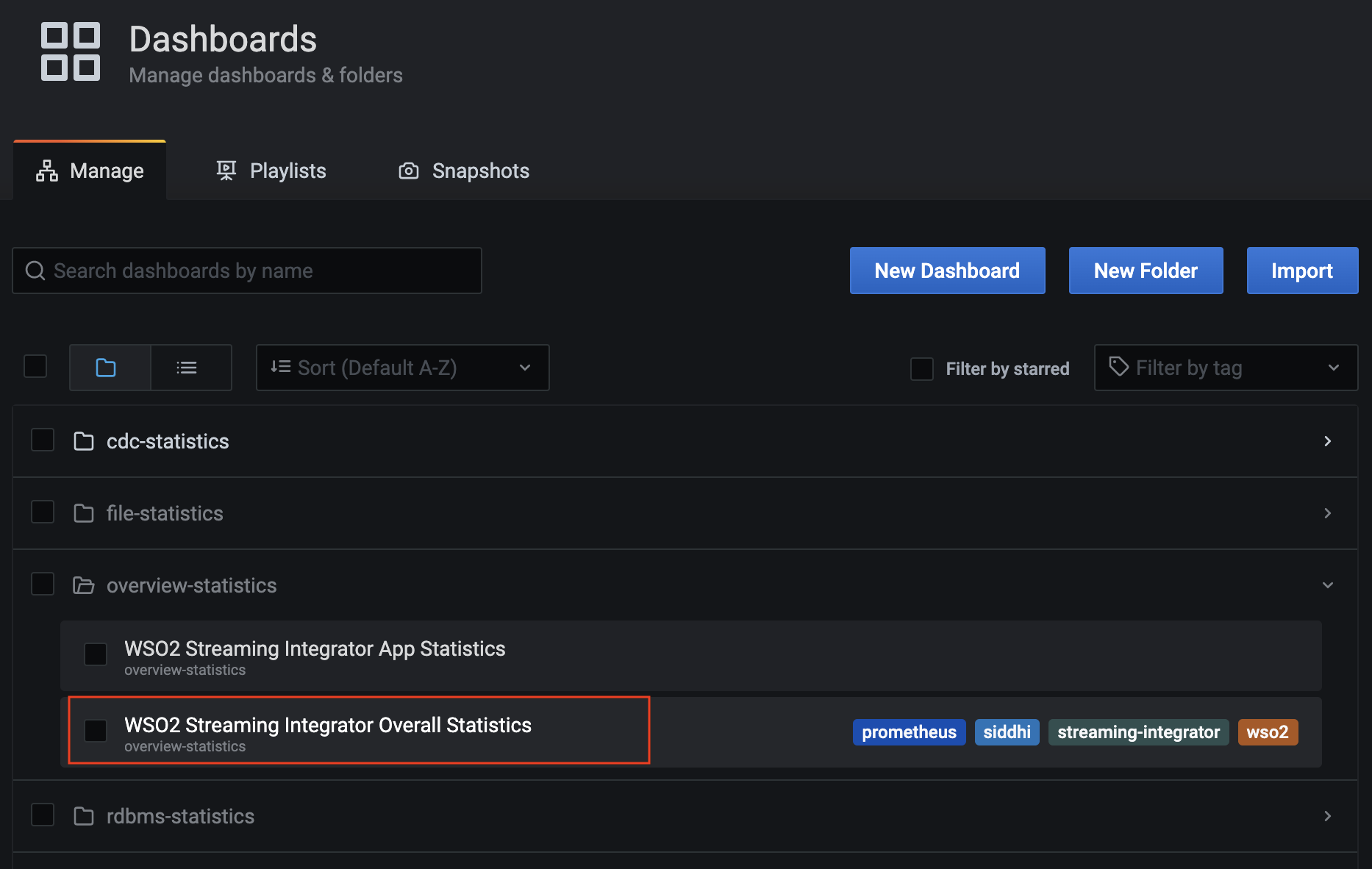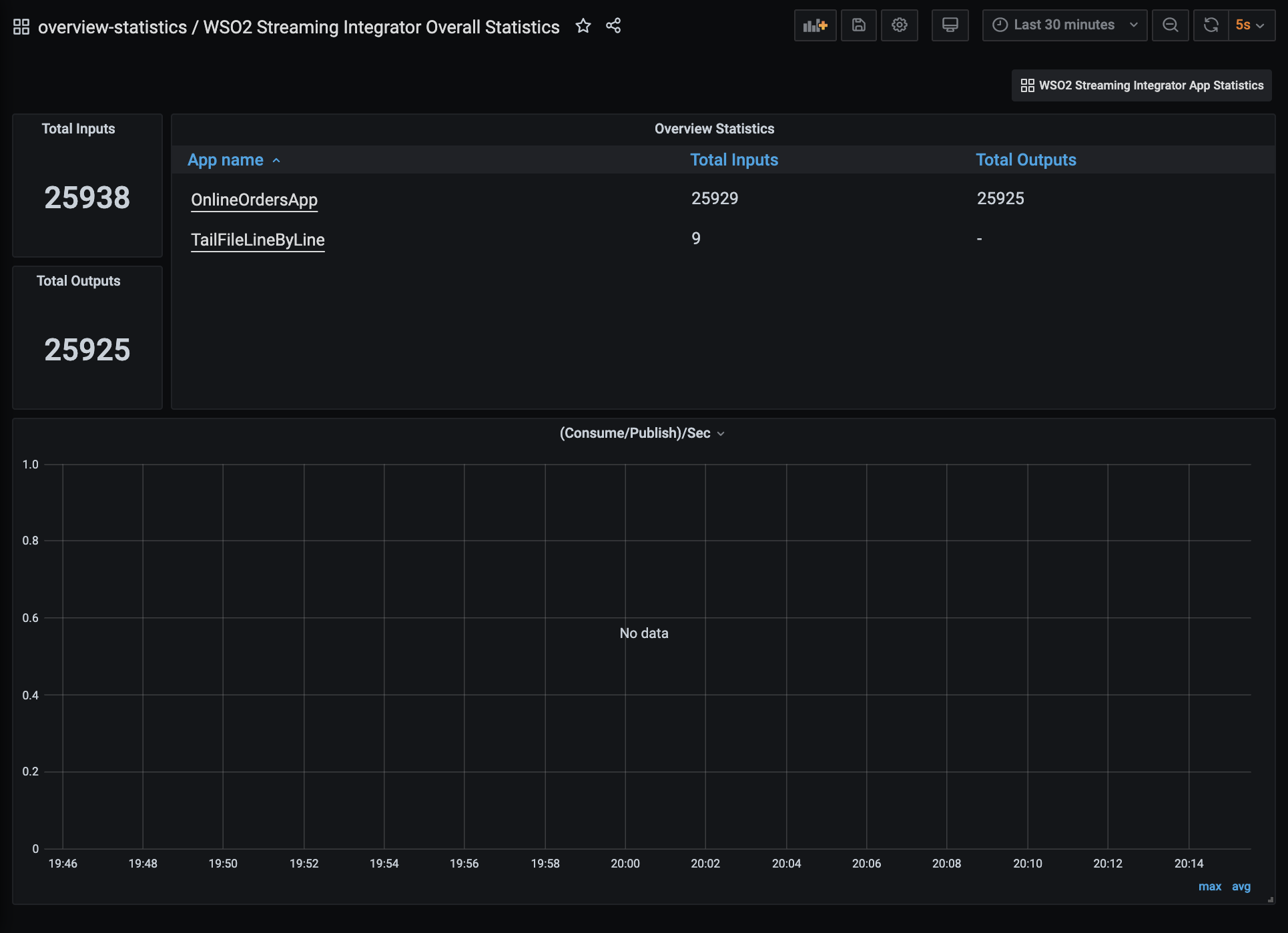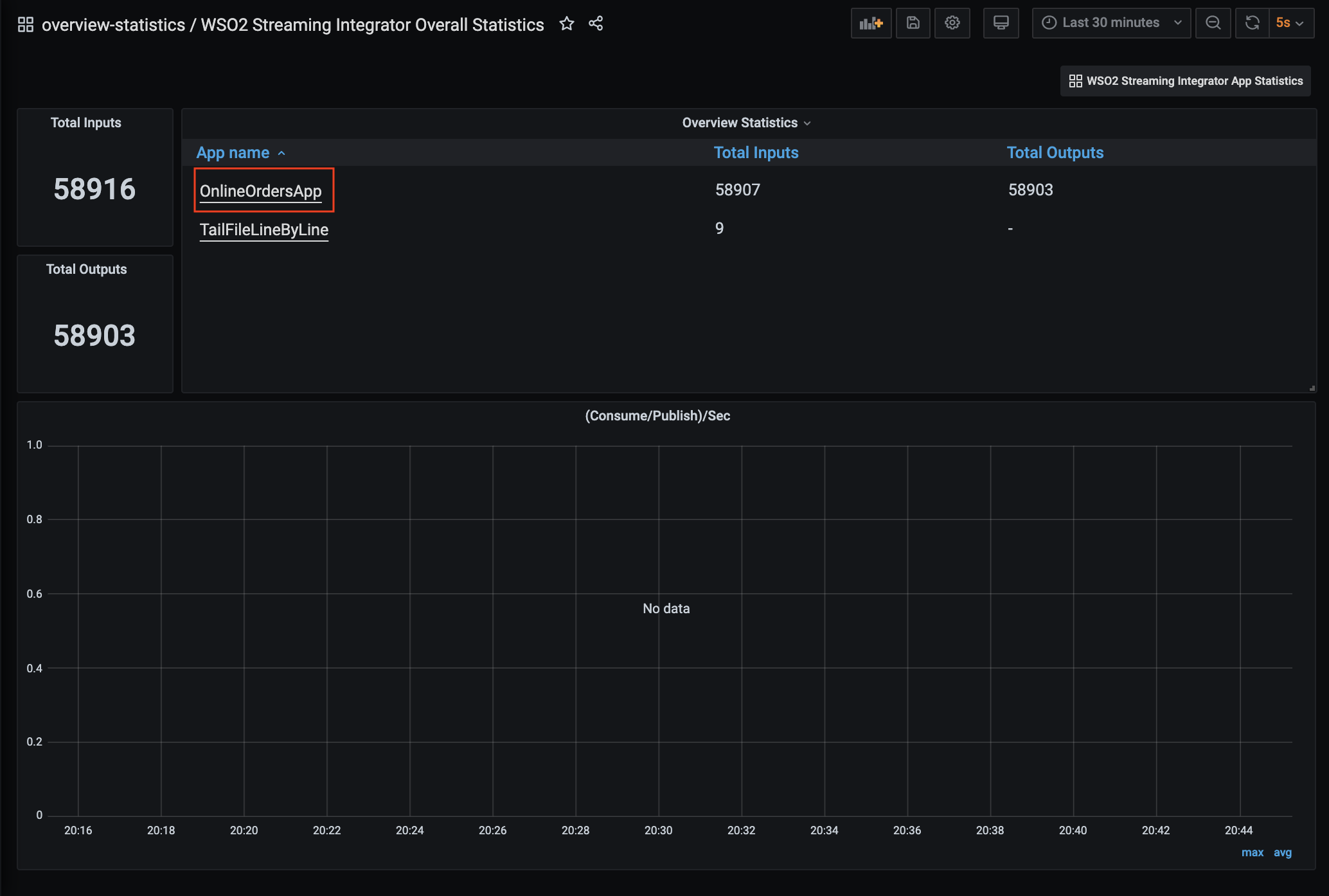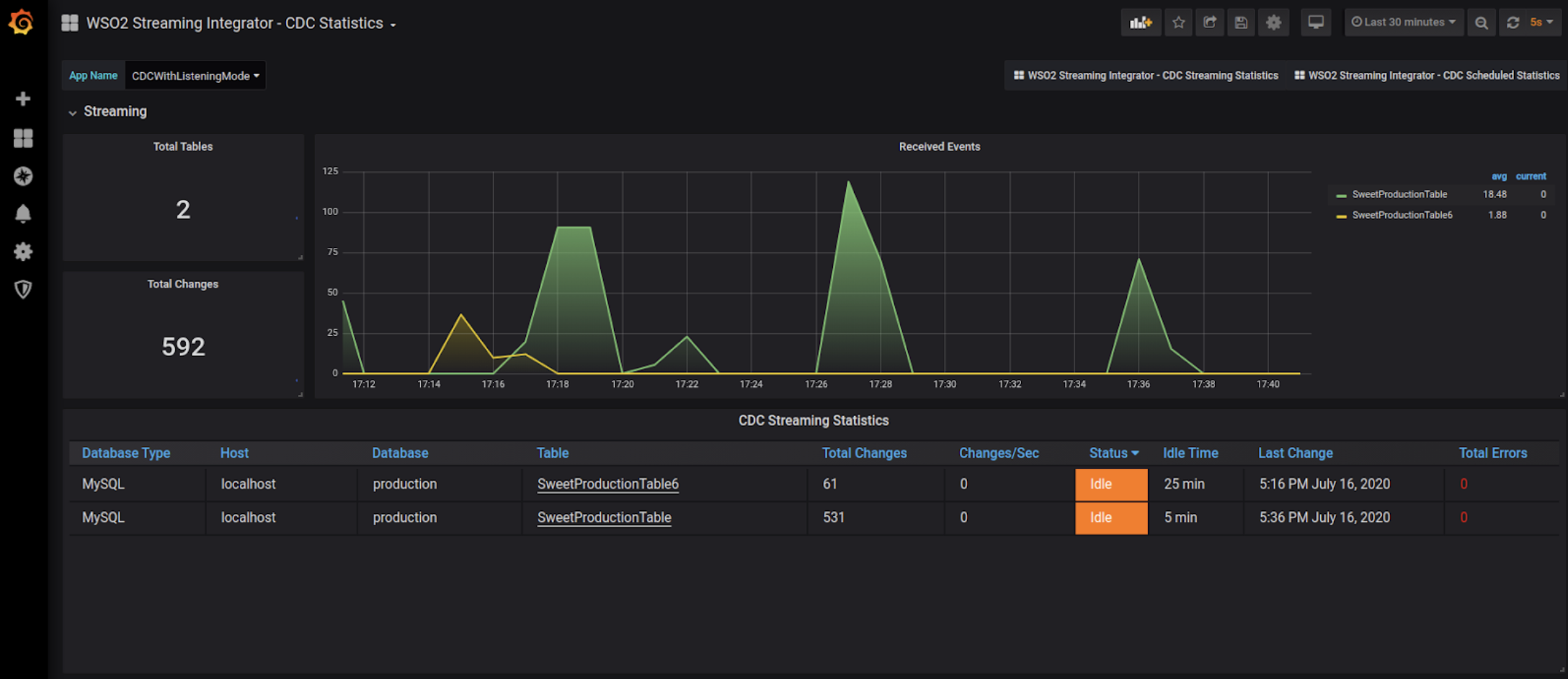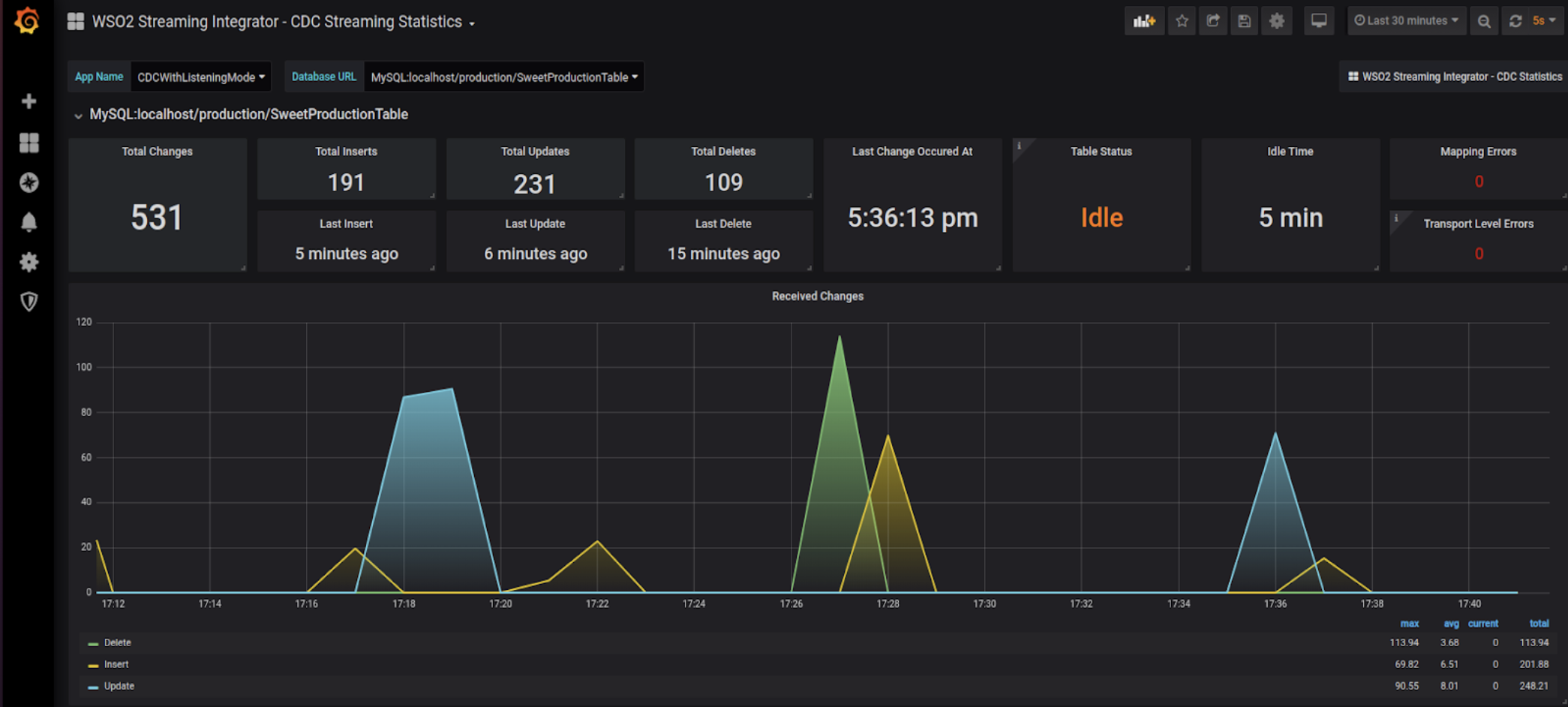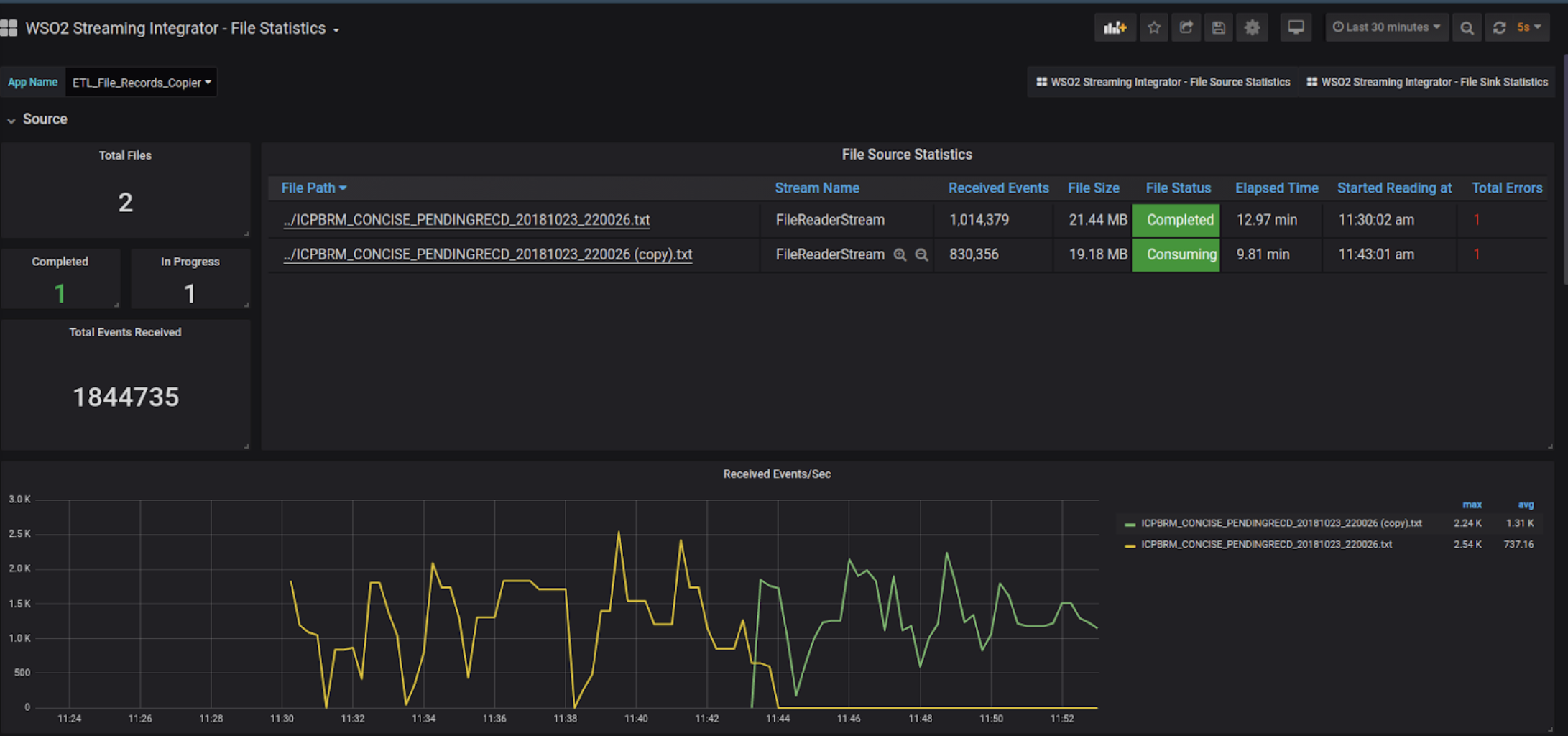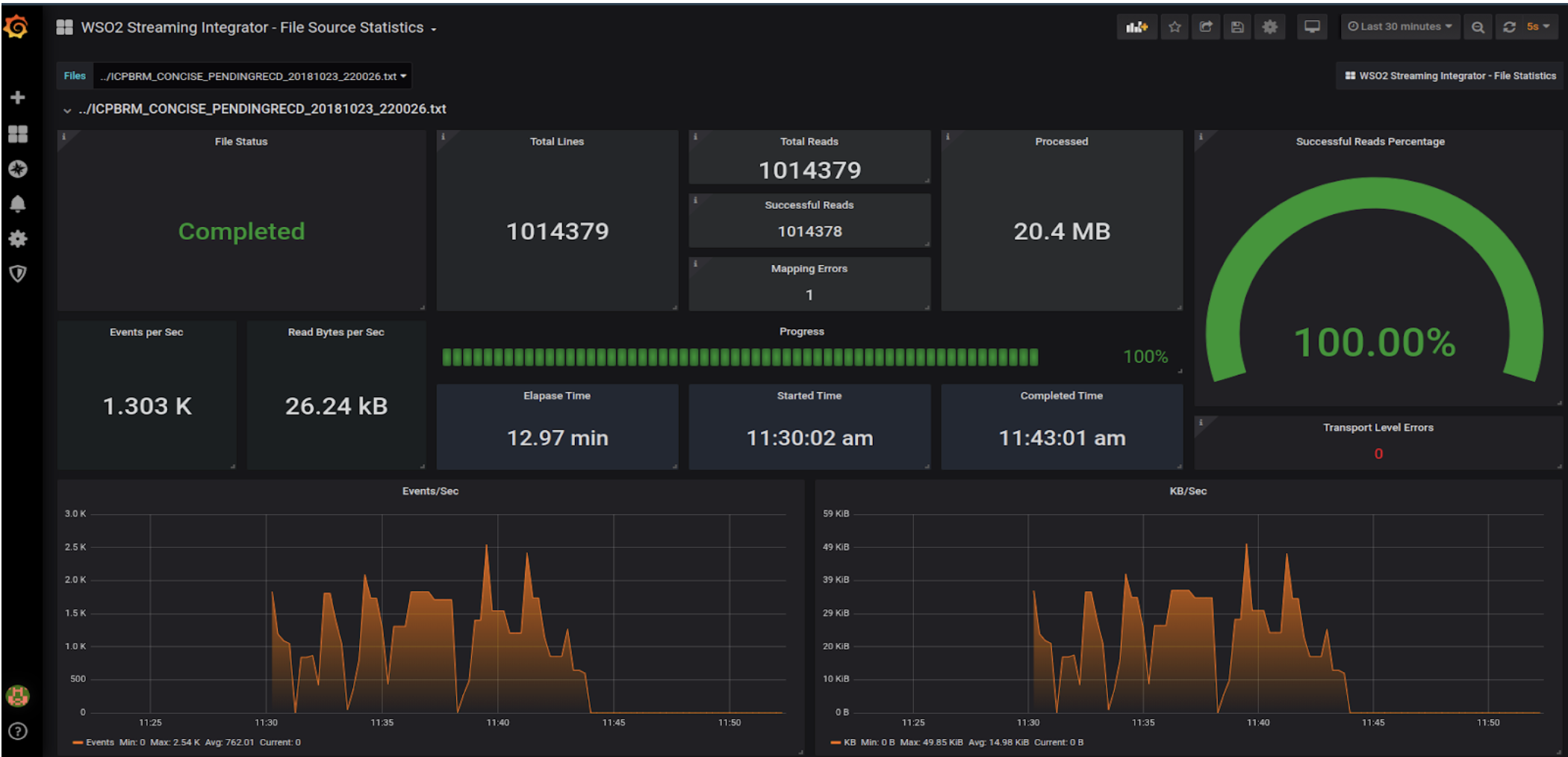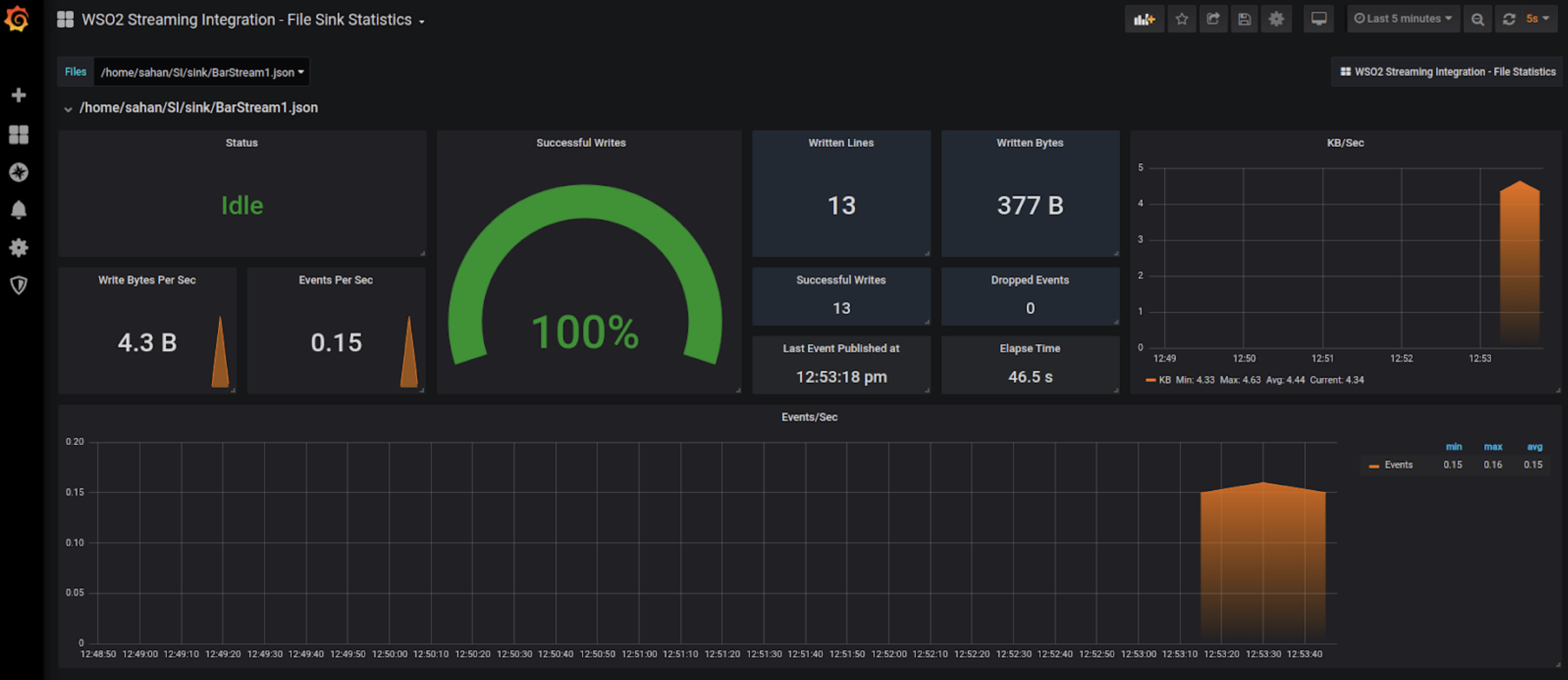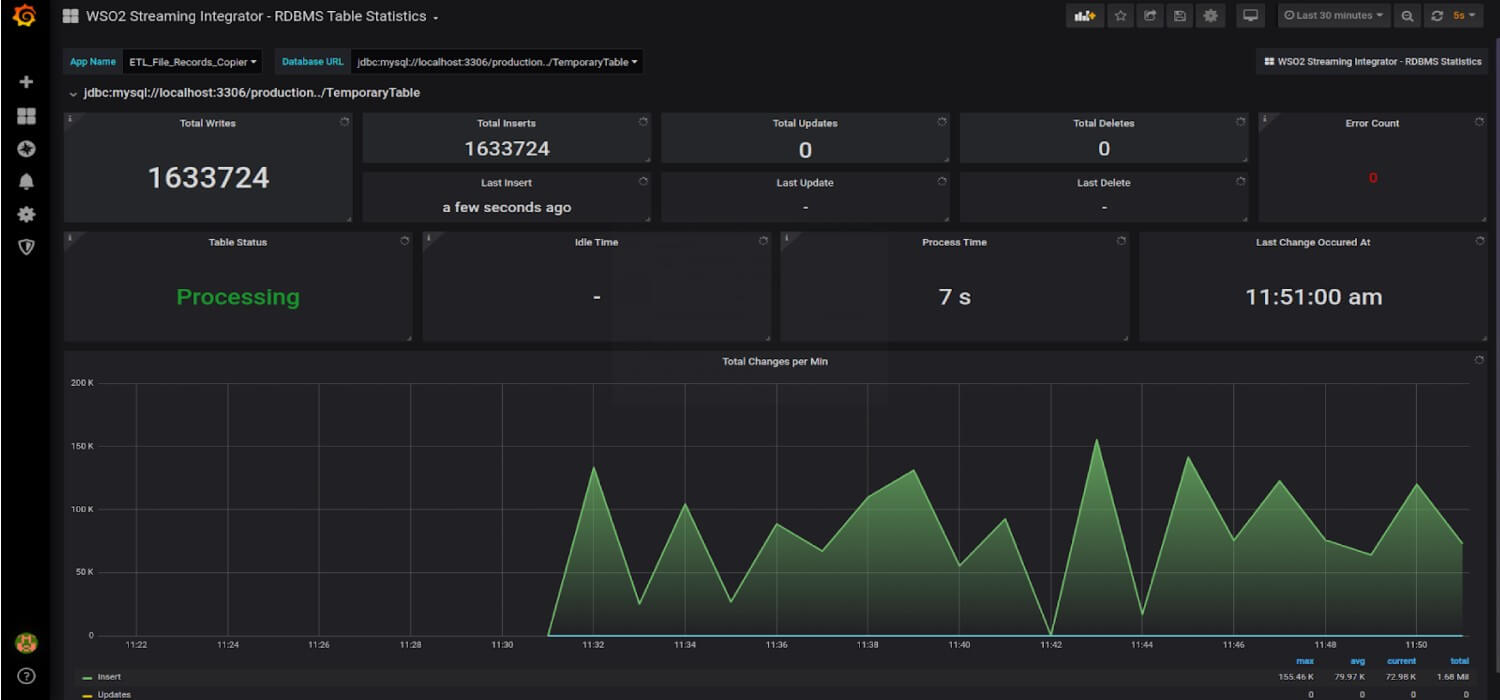Viewing ETL Flow Statistics¶
Before you begin:
- Follow the instructions in the getting started guide to enable the ESB Streaming Integrator to publish statistics in the Grafana dashboard.
- Organize the dashboards in folders.
Follow the instructions below to navigate through the Grafana dashboards, which you set up for monitoring the ETL flows in ESB Streaming Integrator and to analyze statistics:
-
In the left pane, click the Dashboards icon, and then click Manage to open the Dashboards page.
-
Click ESB Streaming Integrator Overall Statistics in the Dashboards page.
The overall statistics are displayed as shown in the following example.
This provides an overview of the overall performance of the ESB Streaming Integrator instance by displaying the total number of input events consumed and the total number of output events. It also provides the breakdown of the total inputs and outputs by Siddhi application. The (Consume/Publish)/Sec graph indicates the rate at which the consumed input events are published per second.
-
To view the statistics specific to a Siddhi application, click on the relevant Siddhi application.
The ESB Streaming Integrator App Statistics dashboard opens. This allows you to access any statistics relating to change data capture, file processing and data store integration activities carried out via the selected Siddhi application.
Viewing CDC statistics¶
The CDC related statistics are displayed in the Sources section of the ESB Streaming Integrator App Statistics dashboard. To view the detailed statistics for a specific table, click on that table.
As a result, the CDC Statistics dashboard opens with change data statistics specific to that table.
If you click on a table for which change data is captured in a streaming manner (i.e., a table in the CDC Streaming Statistics section), the CDC Streaming Statistics dashboard opens with change data related statistics specific to the selected table, as shown in the example below.
If you click on a table for which change data is captured in a scheduled manner by polling the table (i.e., a table in the CDC Scheduled Statistics section), the CDC Scheduled Statistics dashboard opens with change data related statistics specific to the selected table as shown in the example below.
Viewing File statistics¶
- When the content of a file is used as input data, the file is displayed in the Sources section as shown in the example below.
To view statistics for a specific file, click on it. As a result, the ESB Streaming Integrator - File Statistics dashboard opens as shown in the example below.
When you click on the same file again, the ESB Streaming Integrator - File Source Statistics dashboard opens with more detailed information about this source file as shown in the example below.
- When the content of a file is generated as an output of the Siddhi application, the file is displayed in the Destinations section as shown in the example below.
To view statistics for a specific file, click on it. As a result, the ESB Streaming Integrator - File Statistics dashboard opens as shown in the example below.
When you click on the same file again, the ESB Streaming Integrator - File Sink Statistics dashboard opens with more detailed information about this sink file as shown in the example below.
Viewing RDBMS statistics¶
When the records of an RDBMS database are used as input data by the selected Siddhi application, the database is displayed in the Sources section. When any output generated by the selected Siddhi application is saved in a database, that database is displayed under Destinations.
In each section, all the databases of the relevant category is listed in a table as shown in the example below.
To view detailed statistics of a specific database, click on that database.
The RDBMS Statistics dashboard opens with RDBMS statistics specific to the selected database.
To view statistics relating to a specific table, click on the relevant table name in the RDBMS Table table.
The RDBMS Table Statistics dashboard opens with statistics specific to the selected table.
Viewing Kafka statistics¶
Kafka related statistics are displayed in the Sources and Destinations sections of the ESB Streaming Integrator App Statistics dashboard.
To view the details on the overall Kafka Statistics for a specific app, click on any stream link on the table. As a result, the ESB Streaming Integrator Kafka Statistics dashboard appears.
This page has two sections: Source and Sink.
-
The Source section shows the overall Kafka Source metrics such as total reads, input event rate etc. It also contains a table that lists all the streams that are associated with a Kafka source. If you click on a stream, it will take you to ESB Streaming Integrator Kafka Source Statistics dashboard.
This dashboard shows the Kafka Source statistics related to the selected stream. A stream is associated with one or more topics. Furthermore, each topic is associated with a partition. You can use this dashboard to view statistics for each separate Topic-Partition combination to which the selected stream is subscribed.
-
The Sink section shows the overall Kafka Sink metrics such as total writes, output event rate, etc. It also contains a table that lists all the streams that are associated with a Kafka source. If you click on a stream, it will take you to ESB Streaming Integrator Kafka Sink Statistics dashboard.
This dashboard shows the Kafka Sink statistics related to the selected stream. Here, a stream publishes to a specific Kafka Topic and to one or more partitions. You can use this dashboard to view statistics for each separate Topic-Partition combination to which the selected stream publishes messages.
